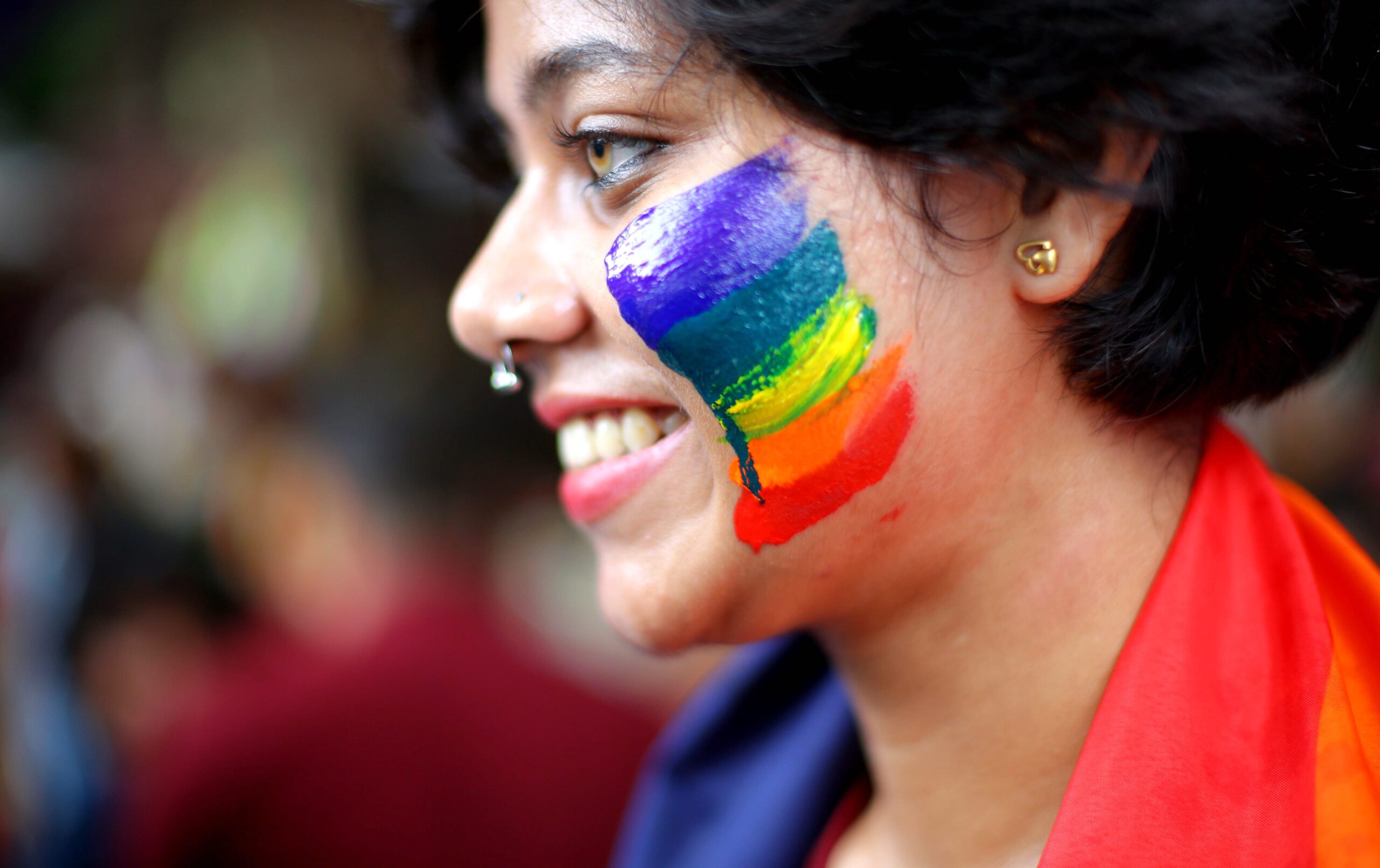LGBT activists in India scored a huge victory on Thursday when the Supreme Court struck down the nation’s 157-year-old law criminalizing consensual gay sex.
Section 377 of the Indian Penal Code (IPC), a relic of the British colonial era, criminalized “carnal knowledge against the order of nature” and carried a sentence of life imprisonment. The Supreme Court’s decision was delivered by a five-judge bench, one who said that that criminalizing “carnal intercourse is irrational, arbitrary and manifestly unconstitutional.” Another judge stated that the state had no right to control the private lives of LGBT Indians.
It’s an unquestionable victory for the global LGBT rights movement — put in perspective, there are as many people who live in India as in the remaining 76 countries that criminalize homosexuality. But we should be cautious not to read too much into this victory or assume that it spells the end of our fight against the criminalization of homosexuality.
This ruling is a significant milestone, but it leaves much work to be accomplished to eradicate anti-gay laws in other countries where homosexuality is punishable by law.
In the lead up to the ruling, LGBT activists were quick to draw the link between India’s anti-gay law and similar laws in other former British colonies, which make up the bulk of the current states that still criminalize gay sex.
Prior to the colonial era, homosexuality was largely tolerated in India though legal and cultural proscriptions against it did exist, particularly for Muslims during the Mughal Empire.
Section 377 was drafted into law in 1861 during the British Raj. Pakistan, Bangladesh and Myanmar also inherited the IPC when they broke away from the Raj, and the IPC formed the basis of law codes imposed on other British colonies in Africa and Asia.
But while the Indian Supreme Court ruling is forceful, eloquent and broad in its application in India, it does not set legal precedent in any other country. With good reason, most former British colonies are fiercely independent and protective of their sovereignty, so their legal systems are not linked.
After all, during the brief period when Indian courts had briefly struck down Section 377 from 2009 to 2013, we did not see a global wave of successful litigation against anti-gay laws. In fact, during this period only two states, Fiji and São Tomé and Príncipe, repealed their sodomy laws, both through their legislatures, and only Fiji was a former British colony. Singapore’s Supreme Court ruled in 2014 that its colonial-era sodomy law was legal.
And the court’s ruling had little to do with the evolution of rights in the United Kingdom and everything to do with India’s constitution, which holds particular respect for values of democracy, secularism, plurality, equality and individual rights, which arose from India’s unique culture and history.
Moreover, Indian LGBT activists had laid the groundwork for the strong decision by the court with successful awareness and tolerance campaigns. Social networking and internet groups for LGBT Indians have been popular for decades. Pride parades and queer film festivals have been held all over India since at least 2007.
Bollywood film and television continue to improve on accurately depicting LGBT characters and a network of openly queer celebrities and celebrity allies had been vocal about the need to repeal Section 377. Major newspapers and media outlets called for the court to strike down the law. Even a few prominent politicians had called for the law to be repealed.
By the time the case was in front of the Supreme Court, the government was officially ambivalent about the outcome. While social acceptance of LGBT people isn’t comparable to Canada, it seems like it’s getting there.
The climate for judicial activism in India is, quite simply, not analogous to LGBT life in other former British colonies like Ghana, Nigeria, Uganda or Malaysia, notorious for anti-gay governments and police crackdowns. But the steps that led to the victory in India could serve as a textbook example for successful longer-term activism elsewhere.
The global LGBT movement has had an unprecedented track record of success, particularly over the last 30 years. Fifty-two countries on all continents have decriminalized same-sex intercourse since 1988. Some recent victories have come through the courts, as in Trinidad and Tobago earlier this year or Belize in 2016, or through legislative action as in Seychelles, Nauru, Palau, Fiji and Northern Cyprus — all former UK colonies too that decriminalized between 2010 and 2014.
Another former British colony, the Cook Islands (now a country in free association with New Zealand) is poised to repeal its sodomy law legislatively this year, as is former Portuguese colony Angola.
Meanwhile, activists in Kenya and Botswana will test the limits of Indian jurisprudence in their countries as cases challenging their “carnal knowledge against the order of nature laws” are pending before the courts.
Activists on the ground in the 76 criminalizing countries know best what their communities need. But in many cases the way forward is to build up civil society networks and cultural acceptance of queer people on the ground.
The Indian Supreme Court, with its eloquent ruling detailing the social exclusion and isolation LGBT people feel because of the law and its indefensibility in a free society, handed activists around the world a wonderful tool to build that social support. Courts can’t be relied on for everything.


 Why you can trust Xtra
Why you can trust Xtra


